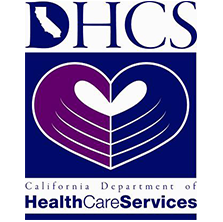Drug Addiction Treatment
Drug Addiction Treatment
Drug addiction treatment functions as a safe haven for the addict, isolating him or her from environmental stresses that create the desire to use. By distancing the addict from work-related pressure, uncomfortable social situations, family conflict, and other potential triggers, the likelihood of relapse in the first stage of recovery is significantly lessened.
Unfortunately, cleansing the system of chemicals is only the tip of the iceberg. Drug addiction is a multidimensional affliction and takes its toll in all areas of the addict’s life. Because the disease shows many faces, drug addiction treatment must be similarly multifaceted. Effective drug addiction treatment must, first and foremost, help an individual stop using drugs. However, this treatment must also help the individual make practical lifestyle choices, create healthy relationships, and function in the workplace and society at large.
Addiction is a chronic disease and can never be fully cured. Even when an addict manages to abstain from using for a period of time, there can be no guarantees that he or she will not relapse. It is crucial that drug addiction treatment provide a set of tools that addicts can carry with them long after leaving the treatment program. The multidimensional approach to drug addiction treatment is effective because it not only eliminates drugs from the body, but also attempts to work through other life problems that made escape through drugs sound so appealing in the first place. Effective drug addiction treatment counteracts the disruptive effects drugs have had on the brain and helps addicts change their behavior in ways that restore sanity to their lives.
Why can’t Addicts Just Stop?
When an individual begins using drugs, he or she usually believes that this drug use is a recreational activity – something that is voluntary. However, once drug users become addicted, they will often try to quit on their own, only to find that they cannot maintain abstinence. Long-term drug abuse changes a person’s brain chemistry, making it impossible for many addicts to abstain without drug addiction treatment. The brain is altered in such a way that the addict is incapable of resisting a drug craving even when using is sure to bring unfavorable consequences. This phenomenon of persistent drug use in spite of negative consequences is the key characteristic of drug addiction.
Addiction is generally perceived as a behavioral pattern; the underlying biology of the disease is not widely understood. Those who view addiction in this oversimplified context may not understand the necessity of drug addiction treatment. However, once addiction is established as a physical disease of the brain, a disease whose survival requires the rewiring of the neurological system, it is clear that drug addiction treatment is the best way to assist this process, thereby arresting the behavioral pattern of using.
Types of Therapies used in Drug Addiction Treatment
Although the 12-step model is a universally applicable and effective program of recovery, most individuals suffering from drug addiction struggle with related issues that are not addressed specifically in 12-step programs. The wide variety of experiences and co-occurring addictions and disorders that affect drug addicted persons necessitate a flexible program of drug addiction treatment.
The essential element of drug addiction treatment that 12-step programs exclude is therapy. Individual psychotherapy sessions allow addicts to work through whatever core issues they are facing in a safe space with the assistance of a trained professional. Facing these issues, many of which relate to past trauma, can clear the slate so that drugs are no longer needed to insulate the patient from these painful memories. Therapy sessions may also make use of cognitive-behavioral therapy as a means of confronting situational triggers that have the potential to cause a relapse. Through various methods, this type of therapy modifies drug-related ideas and behaviors and enforces positive coping mechanisms. Group therapy sessions and workshops are also powerful tools in drug addiction treatment, allowing addicts to find common ground and begin to understand that they are not alone in the disease of addiction.
Medication and Drug Addiction Treatment
Drug addiction is a dual-system disease – it affects both the mind and the body. Just as behavioral therapy helps a drug addicted individual re-calibrate so that the individual can function in the world, medication can be used to help the body re-adapt to functioning sober. This is especially helpful in the earliest stage of recovery, when withdrawal symptoms are acute. With medication, detoxification can be significantly less traumatic. There are also cases where continued use of medication is recommended. For the most part, these are cases where treatable psychological conditions preempted drug use. Though drugs are often a poor choice of medication for afflictions like anxiety disorder and chronic depression, they are nevertheless used in this manner – as a self-prescribed medication. By replacing these improvised “medications” with psychologically appropriate pharmaceuticals, it is possible to give these addicts relief from the mental conditions that drove them to use drugs.
Committing to Drug Addiction Treatment
The moment when an addict realizes that drugs have caused his or her life to become unmanageable is the most pivotal moment in recovery. In this so-called “moment of clarity,” the addict has a unique opportunity to throw in the towel and commit to change. It is crucial that drug addiction treatment be introduced as a course of action at this time. Though it is possible for some addicts to cease using drugs without entering a residential drug addiction treatment program, many need the structured and protected environment offered in such a program in order to make it through the physically, mentally and emotionally painful detoxification period. A drug addiction treatment program also cultivates a support system of mentors and peers in recovery who can remain valuable resources long after treatment is completed.
Sadly, there is no cure for drug addiction. Like other chronic illnesses, it requires a persistent course of treatment, and can be characterized by relapses. Trying to fight this disease alone is akin to trying to will the body to free itself of cancer – a hopeless battle. With the help of appropriate tools, however, people suffering from drug addiction can restore sanity to their lives. Drug addiction treatment provides the necessary care to maximize chances of recovery. With a sincere commitment to change and the support of a treatment program, recovery is possible for any drug addict, no matter how dire the situation.




